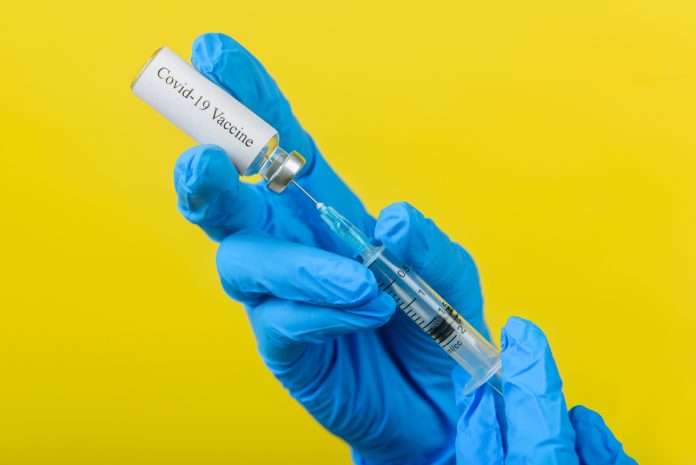Margaret Keenan, a 90 year old former jewellery shop assistant, becomes the first person to receive a COVID-19 vaccination in the UK
The Pfizer and BioNTech vaccine was approved on 2 December, with the expectation of vaccinations reaching people in the next few days. Today, the first vaccination has been administered in Coventry, at one of 50 Hospital Hubs which will receive enough COVID-19 vaccinations to do the same for another 400,000 people.
Margaret, who will turn 91 next week, said: “I feel so privileged to be the first person vaccinated against COVID-19, it’s the best early birthday present I could wish for because it means I can finally look forward to spending time with my family and friends in the New Year after being on my own for most of the year.”
Her nurse is May Parsons, who is originally from the Philippines and has worked in the NHS for the last 24 years. Speaking at University Hospitals Coventry and Warwickshire NHS Trust, nurse Parsons, said: “It’s a huge honour to be the first person in the country to deliver a COVID-19 jab to a patient, I’m just glad that I’m able to play a part in this historic day.
“The last few months have been tough for all of us working in the NHS, but now it feels like there is light at the end of the tunnel.”
Who will get the COVID-19 vaccinations first?
Patients over the age of 80 who are already attending hospitals and people of the same age who are discharged after a hospital stay are the first in line for the Pfizer vaccine. Care home providers are currently expected to book in their staff to vaccination clinics, with residents also next in line for the vaccine. However, the vaccine can only be moved four times before it expires, and it requires strictly temperature controlled conditions.
The difficulty of moving the vaccine to smaller, more rural areas will be a challenge facing healthcare decision-makers as the rollout continues. Currently, the vaccine is being moved and imported in batches of 1,000.
Pharmacies, local GPs and eventually conference and leisure centres are going to be the centre point of how this vaccine reaches the UK population.
What about the other vaccines?
With a sense of the beginning of an end to this chapter in the public health history of the UK, the logistics of having two other vaccines nearly ready are easy to miss. Moderna reported an efficacy of 94.1%, with the UK-based AstraZeneca and Oxford vaccine reporting a 90% efficacy. Both of these are in their final stages of clinical trials, and AstraZeneca expected to push for regulatory approval in the UK before the end of 2020 – despite a dosing problem that created some doubts about the accuracy of their reported outcomes.
Will UK residents be given a mix or one vaccine? There are reports that a new clinical trial will begin in January, to understand if mixing COVID vaccines would give a stronger protection against the virus or not. The Guardian report that this trial will mix Pfizer and AstraZeneca, but not Moderna.
Sir Simon Stevens, NHS chief executive, said: “Coronavirus is the greatest health challenge in NHS history, taking loved ones from us and disrupting every part of our lives. Hospitals have now cared for more than 190,000 seriously ill COVID-19 patients and have seen beds fill up again in recent weeks.
“The deployment of this vaccine marks a decisive turning point in the battle with the pandemic. NHS vaccination programmes which have successfully helped overcome tuberculosis, polio, and smallpox, now turn their focus to coronavirus.
“NHS staff are proud to be leading the way as the first health service in the world to begin vaccination with this COVID jab.”











